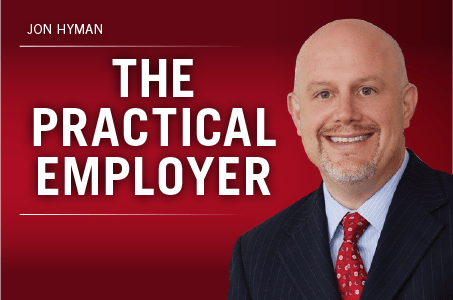I read with interest a post on Eric Meyer’s Employer Handbook Blog, titled Court says employee’s Facebook page on race stereotypes is fair game at trial. The post discusses a recent federal court decision which permitted an employer to impeach at trial a race-discrimination plaintiff with her own racial Facebook posts.
No doubt that some of the comments on plaintiff’s Facebook page are prejudicial to her case. Indeed, some of plaintiff’s comments on her Facebook actually support the claims she asserts in this case and plaintiff has used these posts to substantiate her claims. … It also relates to whether plaintiff was offended by such conduct at work and whether this conduct forced her to resign since she herself participated in comments containing racial stereotypes and jokes on her Facebook page which were, in part, insensitive and demeaning. …
[T]here is evidence in this case that at times plaintiff initiated and engaged in racial jokes and comments while at work with co-workers. … [T]he comments made by plaintiff and the comments liked by her on her Facebook page can be used by the Hospital to challenge her credibility at trial. As mentioned, the credibility of the witnesses is for the jury to weigh. This evidence is also relevant to whether plaintiff truly found the comments made by co-workers as offensive and unwelcomed.
Here’s my question. How is this different than impeaching a sexual-harassment plaintiff with her provocative clothing, or personal pornography habit? Just because one finds some sexual or racist content unoffensive doesn’t mean that one welcomes all such content, especially at work.
Food for thought, and another reason why employees need to be extraordinarily careful with what they share via social media.
Jon Hyman is a partner at Meyers, Roman, Friedberg & Lewis in Cleveland. To comment, email editors@workforce.com. Follow Hyman’s blog at Workforce.com/PracticalEmployer.


First, I’m not a lawyer.
Next, I don’t think there’s a fit between “provocative clothing” and the case as it’s described. A key distinction (to me at least) is that there is a minimal connection between an employee’s attire and an openness to hostile/inappropriate remarks. An employee may dress a certain way for many reasons (e.g. believing it is fashionable, feeling it is comfortable). Whatever the reason, it would be quite easy to justify scurrilous remarks from business associates as unwelcome and hostile. In this case however an employee has participated in behavior/language in one context and claims it is offensive in another (which is not the case with provocative clothing). It may be possible in certain instances to make such a claim (“Language that I use off the job I find offensive/hostile in my work environment”) however it would seem the burden of proving bona fide harm rises (at least somewhat).
Also I strongly suspect, or at least hope, that a totality of communications was considered here. That is, a single comment or post (e.g. “yo know yo ass is from da hood”) should not be a blanket defense of racially-hostile remarks. Multiple postings however suggest the employee actively participates such language. How is a court to know that employee is truly aggrieved as opposed to opportunistic?
As noted repeatedly, social media is public (and it doesn’t matter what your settings are). Correspondingly, It’s difficult to make a claim (for purposes of seeking legal redress) that language an employee actively and publicly engages in should be actionable at in a work setting.
Finally, I in no way endorse whatever conduct/remarks this employee was subjected to. While I can understand (at least potentially) why a court would rule the way it did, such treatment from co-workers/supervisors would be clear evidence of organizational pathology and be treated, internally, as such.
First, I’m not a lawyer.
Next, I don’t think there’s a fit between “provocative clothing” and the case as it’s described. A key distinction (to me at least) is that there is a minimal connection between an employee’s attire and an openness to hostile/inappropriate remarks. An employee may dress a certain way for many reasons (e.g. believing it is fashionable, feeling it is comfortable). Whatever the reason, it would be quite easy to justify scurrilous remarks from business associates as unwelcome and hostile. In this case however an employee has participated in behavior/language in one context and claims it is offensive in another (which is not the case with provocative clothing). It may be possible in certain instances to make such a claim (“Language that I use off the job I find offensive/hostile in my work environment”) however it would seem the burden of proving bona fide harm rises (at least somewhat).
Also I strongly suspect, or at least hope, that a totality of communications was considered here. That is, a single comment or post (e.g. “yo know yo ass is from da hood”) should not be a blanket defense of racially-hostile remarks. Multiple postings however suggest the employee actively participates such language. How is a court to know that employee is truly aggrieved as opposed to opportunistic?
As noted repeatedly, social media is public (and it doesn’t matter what your settings are). Correspondingly, It’s difficult to make a claim (for purposes of seeking legal redress) that language an employee actively and publicly engages in should be actionable at in a work setting.
Finally, I in no way endorse whatever conduct/remarks this employee was subjected to. While I can understand (at least potentially) why a court would rule the way it did, such treatment from co-workers/supervisors would be clear evidence of organizational pathology and be treated, internally, as such.